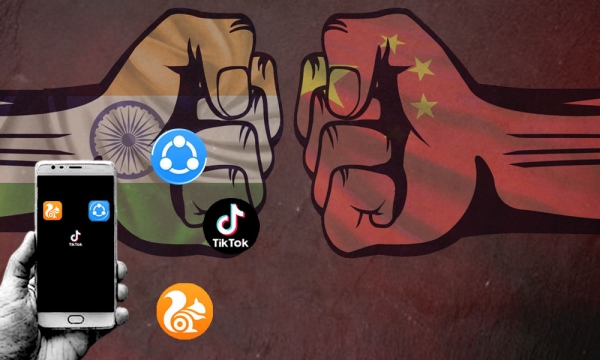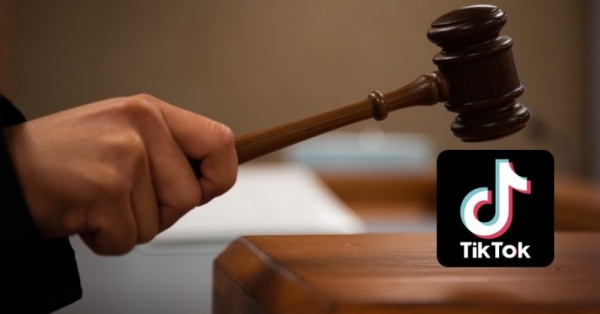India's ban on Chinese apps: What next?
TikTok is also likely to likely geofence its app, limiting access to the 200 million users it claimed to have prior to the ban. According to sources, the execut
- by B2B Desk 2020-07-01 06:33:56
BENGALURU/NEW DELHI: An interim order issued by the Indian government on Monday banning 59 apps is likely to result in a complete reset of the ecosystem created by a wide range of Chinese mobile apps in specific categories, including a short video, where TikTok and Likee dominated In the markets These applications are among those touched by demand, as they gave a boost almost to local rivals such as ShareChat and Roposo, who have been riding on the anti-China sentiment.
The interim order, issued Monday evening, was sent to all relevant intermediaries, including app owners, who have easy access to the app (app stores), Internet service providers, and telecommunications networks. For example, ByteDance-owned TikTok has already complied with this request and voluntarily taking down its app Monday night from the Google Play Store and Apple AppStore.

TikTok is also likely to likely geofence its app, limiting access to the 200 million users it claimed to have prior to the ban. According to sources, the executives must attend the hearing of government officials before a committee of the Ministry of the Interior, the Ministry of Electronics and Information and Technology (Meity), the Ministry of Law and the CERT-In. "In all likelihood, this will be a routine meeting, where they will be given an opportunity to present their statements before confirming the order," said one person familiar with the events related to the ban. If the request is confirmed (possibly), these apps may use the law to challenge the ban.
"The government of India has issued an interim order to ban 59 apps, including TikTok, and we are complying with it. We have been invited to meet with relevant government stakeholders for an opportunity to respond and provide clarification," said a tweet from TikTok India, quoting its country head, Nikhil Gandhi.
However, an accurate read of the 59 government-banned by the government suggests a few broad categories, with a specific intent: e-commerce apps (Club Factory and Shein), news apps (NewsDog and Helo), and video content apps (TikTok, Likee, Bigo Live, Vigo Video, Kwai, VMate), utility utilities (Cache Cleaner) and service application bundles provided by leading Chinese tech companies like Baidu (DU Recorder, DU Privacy, Baidu Maps), Xiaomi (Mi Video Call, Mi Community), Cheetah Móvil (CM Cleaner, Clean Master) and Tencent (QQ Mail, WeChat, QQ Player, QQ Music, and popular games).
Sure, Indian users are unlikely to use apps like Baidu Maps, including Baidu Translate, QQ Mail, or QQ Player, as they are primarily intended for Chinese users, but they can be seen as a statement against big Chinese companies. Similarly, WeChat may not be a popular messaging app among Indians, but Indian merchants use it prominently to keep in touch with their Chinese counterparts.

But most of the demand will be felt by apps that provide short video content, which has become a major category for channeling data to users outside Tier 1 and Tier 2 in India. This is due to apps like TikTok, Likee, and Bigo Live. The 15-second instant gratification provided by these users, with content that meets their needs and, in the process, creates an impressive economy for creators of those markets. With one hit, this economy stalled further, despite COVID.
"Advertising has been a nightmare for some of TikTok's influencers. In terms of ticket size, the pecking order is YouTube, Instagram, Facebook, and then TikTok. TikTok may not be the large quantum of business but the volume of business is there. " said Shudeep Majumdar, cofounder of Zefmo Media, which specializes in influencer marketing.
He added: " A majority is still hoping the ban will be lifted. Those with a large share earn a regular income, assuring their followers, Instagram remains the closest to TikTok as the platform they will win. Since YouTube supports videos with long platforms, Facebook and Instagram will be the two main places that He will go to the regular TikTok-er. "
Source: Economics Times
Also Read: Bytedance’s TikTok, Helo disappear from Apple and Google’s app stores in India
POPULAR POSTS
Loan EMIs to Drop as RBI Slashes Repo Rate - Full MPC December 2025 Highlights
by Shan, 2025-12-05 11:49:44
Zoho Mail vs Gmail (2025): Which Email Platform Is Best for Businesses, Startups, and Students?
by Shan, 2025-10-09 12:17:26
PM Modi Launches GST Bachat Utsav: Lower Taxes, More Savings for Every Indian Household
by Shan, 2025-09-24 12:20:59
$100K H-1B Visa Fee Explained: Trump’s New Rule, Clarifications & Impact on Indian Tech Workers
by Shan, 2025-09-22 10:11:03
India-US Trade Deal Soon? Chief US Negotiator Arrives in Delhi as Talks Set to Begin Tomorrow
by Shan, 2025-09-15 11:54:28
Modi Meets Xi: Trump’s Tariffs, Strategic Autonomy, and the Future of Asia’s Power Balance
by Shan, 2025-09-03 06:40:06
Google Claims Gemini AI Uses Just ‘Five Drops of Water’ Per Prompt, Sparks Debate
by Shan, 2025-08-22 12:34:27
RECENTLY PUBLISHED

Pine Labs IPO 2025: Listing Date, Grey Market Premium, and Expert Outlook
- by Shan, 2025-11-05 09:57:07

The Agentic Revolution: Why Salesforce Is Betting Its Future on AI Agents
- by Shan, 2025-11-05 10:29:23

Top 10 Insurance Companies in India 2026: Life, Health, and General Insurance Leaders Explained
- by Shan, 2025-10-30 10:06:42

OpenAI Offers ChatGPT Go Free in India: What’s Behind This Big AI Giveaway?
- by Shan, 2025-10-28 12:19:11

Best Silver Investment Platforms for 2025: From CFDs to Digital Vaults Explained
- by Shan, 2025-10-23 12:22:46





 Subscribe now
Subscribe now 